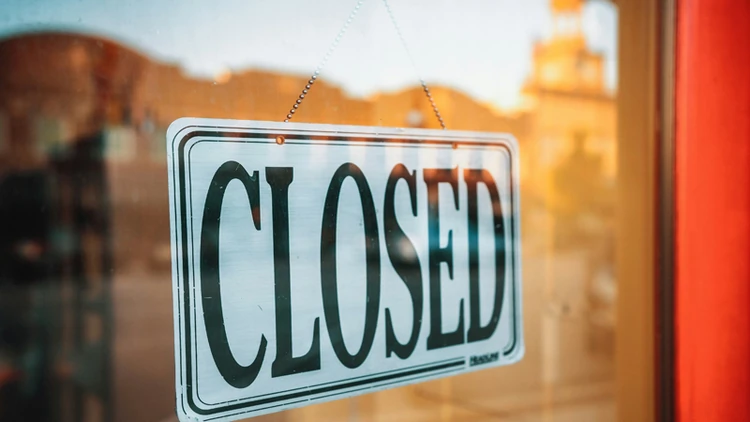Retail experts say it's not always because of the economy

Each day seems to bring news of more store or restaurant closings. CVS has announced it will close more stores in the wake of disappointing third-quarter earnings.
Walgreens recently announced it would close 1,200 more stores over the next three years. Big Lots is closing stores across 27 states as it files for Chapter 11 bankruptcy protection. 7-Eleven is closing more than 400 stores while many restaurants, some part of chains and some mom-and-pop operations, are calling it a day.
Is it the economy or something else? The retail experts we consulted think that, for the most part, its something else.
Joseph Camberato, CEO at NationalBusinessCapital.com, says CVS and Walgreens are struggling because they have become inconvenient and consumer preferences have shifted.
Their locations are large, expensive to maintain, and the products they sell are often overpriced, Camberato told ConsumerAffairs. Filling prescriptions has turned into a headache, with long wait times, even for simplepre-packaged items.
At the same time, he says consumers have more convenient options. They can order prescriptions and convenience store items online and get them delivered the same day, often at lower prices. As an example, Walmart just announced it will deliver prescriptions to customers doors, matching Amazon.
Dan Rowe is the CEO and founder of Fransmart, a franchise development company. He said brick-and-mortar drugstores have become oversaturated.
Pharmacies are just too ubiquitous, located everywhere and right across from each other, he said. Nowadays you have telemedicine, concierge medicine, Mark Cuban's Cost Plus Drugs and delivery services. The redundancy needs thinning out.
Changes in the restaurant business
Salar Sheik, founder of Savory Hospitality Restaurant Consulting, says bars and restaurants are dealing with labor costs and shortages. At the same time, many have fewer customers.
Consumers are more price-sensitive due to inflation and economic uncertainty, Sheik told us. Discretionary spending on dining out has decreased, particularly in mid-range and casual dining segments, squeezing revenue for independent restaurants.
Milos Eric, co-founder and general manager at OysterLink, says restaurants havent completely recovered from the pandemic when many operators took out loans to stay in business.
Many businesses, especially in the hospitality sector, are now facing the challenge of repaying these loans, Eric said. The cash flow needed to sustain operations while paying off large sums can push restaurants into making tough decisions like reducing locations or even closing entirely.
TGI Fridays recently announced the closing of a dozen restaurants, a move Camberato attributes to shifting consumer preferences more than the economy.
'Changing customer preferences'
The issue is that they havent adapted to changing customer preferences, he said. People want better quality food now, and theyre moving away from big chain restaurants that feel like glorified fast food.
Bob Vergidis, chief vision officer at pointofsale.cloud agrees, noting that restaurants are not closing because Americans are eating out less. He says recent data show Americans are frequenting restaurants more in 2024, but are looking for something more than basic.
To stay competitive, restaurants must focus on food quality and delivering exceptional customer experiences, Vergidis said. Restaurants that delight guests and turn visits into memorable events can thrive and build loyalty.
Photo Credit: Consumer Affairs News Department Images
Posted: 2024-10-22 15:33:08



















